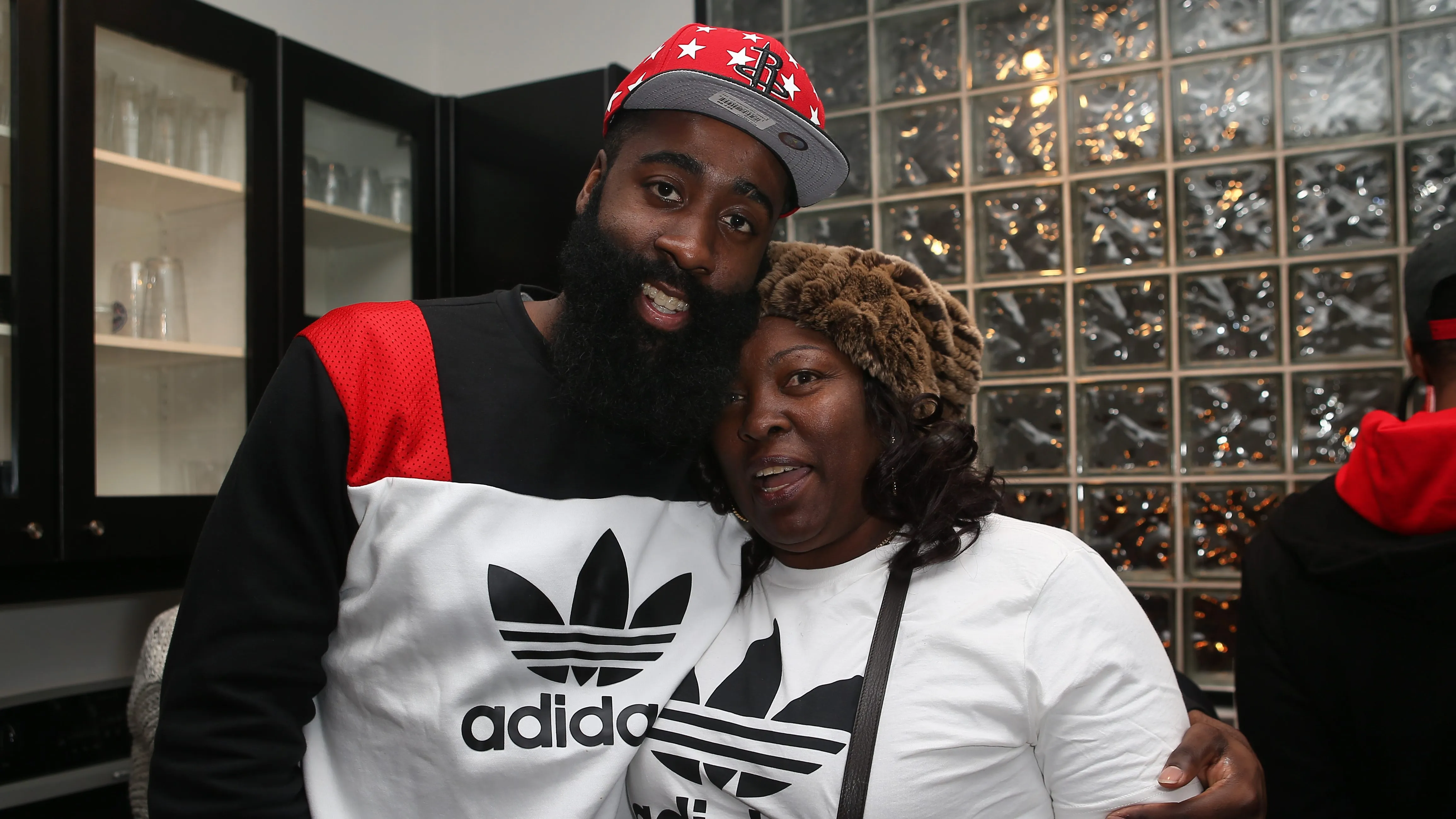

James Harden Faces Personal Turmoil as Mother Dragged Into Restaurant Rent Lawsuit
In what has become an increasingly public and complex legal saga, Monja Willis, the mother of former Houston Rockets star James Harden, has now been officially named in a lawsuit over unpaid rent linked to the now-closed Thirteen, a once high-profile restaurant in Midtown Houston. The suit alleges that Willis made financial promises on behalf of the business that were never honored — further complicating a case already steeped in financial and reputational consequences.
What was once a celebrated culinary venture with celebrity backing has now become a cautionary tale of unkept promises, legal entanglements, and the risks involved in high-profile business ventures.

Thirteen: A Dream That Opened with Big Expectations
When Thirteen first opened its doors in early 2021, it was seen as more than just another upscale restaurant in Houston. Branded with the number “13” — a reference to James Harden’s iconic jersey number — the venue promised an exclusive dining experience curated by one of the NBA’s biggest stars. From signature cocktails to gourmet Southern fusion dishes, it quickly attracted athletes, celebrities, and local influencers.
Even though James Harden himself was not involved in the restaurant’s daily operations, his name and brand were heavily integrated into the business. The star’s departure from the Houston Rockets that same year added an even more sentimental layer to the opening. For some fans, Thirteen felt like a parting gift to the city.
But behind the star power and sleek interiors, trouble was already brewing — and within just a few years, it would boil over into legal conflict.
The Lawsuit: Over $2 Million in Unpaid Rent
Filed by Midtown Scouts Square Property, the landlord of the property, the lawsuit claims that Thirteen and its associated entity, 13 Strikes, owe more than $2 million in unpaid rent and additional lease-related expenses. The building has since been locked, with an official notice placed on the door declaring the business delinquent on its rent obligations.
While initial complaints centered around the company and its lease, an amended petition filed on Tuesday took things further — naming Monja Willis as a key figure in the negotiation process who allegedly made binding financial promises on behalf of the tenants.
“Several of the statements and agreements to pay Additional Rent were made by Ms. Willis on behalf of Tenants in connection with the Lease,” the petition states.
“However, Plaintiff has become aware that Thirteen and 13 Strikes never intended to pay Additional Rent.”
Understanding “Additional Rent” in Commercial Leases
In commercial real estate, the term “Additional Rent” refers to any payments outside of the base rent that tenants are obligated to cover under the lease. These can include:
-
Property taxes
-
Common Area Maintenance (CAM) fees
-
Utility expenses
-
Insurance premiums
-
Repair costs or late fees
This is a critical part of lease agreements, particularly in high-traffic retail areas like Midtown Houston, where operational costs for landlords can be substantial. According to the lawsuit, these additional payments accumulated without resolution, creating a cascading financial issue that ultimately forced the closure of Thirteen.
Monja Willis’ Alleged Role in Lease Negotiations
What sets this case apart from a typical commercial lease dispute is the direct involvement of Monja Willis, a figure better known for her community involvement and as the matriarch of the Harden family. The lawsuit contends that Willis offered to pay additional rent in exchange for a lease extension or adjustment — but never fulfilled those obligations.
Even more striking is the plaintiff’s claim that Willis later admitted that the tenants “never intended” to make the additional payments she had promised.
If these allegations prove true, they could elevate her involvement from a mere intermediary to a personally liable party, potentially exposing her to damages beyond the $1 million already sought by the landlord.

A Timeline of Trouble: From Opening to Closure
2021: The Beginning of Thirteen
In the wake of James Harden’s departure to the Brooklyn Nets, Thirteen opened with much fanfare. While fans mourned the end of an NBA era in Houston, the restaurant gave them a tangible connection to their former star. It wasn’t just a place to eat — it was a place to remember.
2024: A Second Wind That Didn’t Last
After a couple of years of operation and rumors of financial instability, Thirteen attempted to relaunch in early 2024. A redesigned interior and a new menu crafted by celebrated chef Siddartha Caden were introduced in an effort to breathe new life into the business. For a short time, the gamble seemed to work.
But within 18 months, the same issues reemerged. Rent payments were missed, tensions with the landlord escalated, and eventually, Thirteen’s doors were locked, setting the stage for the current legal drama.
Legal Implications and Potential Fallout
The amended lawsuit now seeks $1 million in damages from Monja Willis, in addition to the broader $2 million owed by the business entities. Legal experts believe the inclusion of Willis signals the landlord’s attempt to pierce the corporate veil — a legal strategy used when plaintiffs believe that individuals behind a company should be held personally accountable.
If successful, this case could set a new precedent in how informal financial negotiations are treated in court, especially when those negotiations come from individuals closely tied to celebrity-backed ventures.
No Comment from the Defendants
As of the time of reporting, representation for Thirteen has not issued any public statements. Attempts to contact the restaurant’s management, as well as Monja Willis, have gone unanswered. There has also been no comment from James Harden, who is currently with the Los Angeles Clippers, after stints with both the Brooklyn Nets and Philadelphia 76ers following his departure from Houston.
Celebrity Ventures: The Double-Edged Sword
The downfall of Thirteen reflects a broader trend in celebrity entrepreneurship: while names like James Harden bring attention, they also come with high expectations. Consumers often equate celebrity involvement with quality and reliability, but the reality behind the scenes is often far more complicated.
The case also serves as a warning to business owners and landlords alike: verbal promises or informal agreements, especially from individuals with no direct legal responsibility, can still carry weight in court — particularly when they influence decisions like lease extensions or contract modifications.
Conclusion: A Houston Hotspot Now in Legal Hot Water
What began as a tribute to a basketball legend’s impact on Houston has now become a legal and financial quagmire. The naming of Monja Willis in the lawsuit signals a shift from corporate litigation to potential personal liability, raising serious questions about the conduct of negotiations and the financial integrity behind Thirteen.
Whether the case is settled out of court or heads to trial, the damage — both financial and reputational — is already significant. Thirteen, once a symbol of Houston pride, now stands closed and silent, waiting not for the next reservation, but the next court hearing.


















